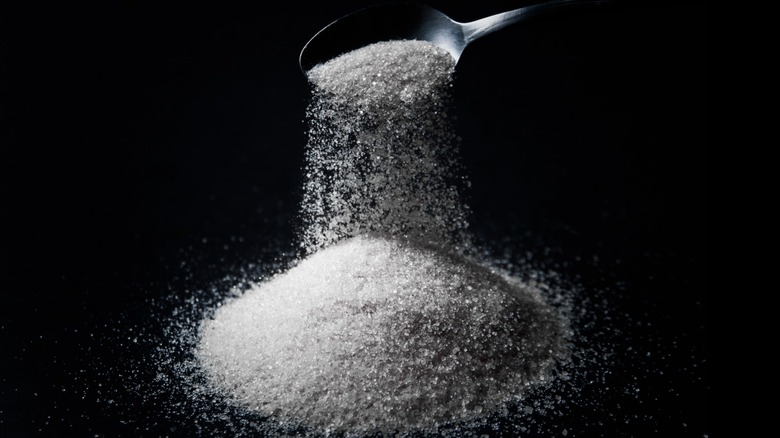Is High-Fructose Corn Syrup Really Worse Than Sugar?
It seems like the question, "Which sugar is the worst for our health?" never really gets answered. Whether it's an apple or a doughnut, our bodies break down the sugars a food contains into smaller sugars, known as glucose, in order to be utilized or stored as energy. It seems that the argument is constantly being made that it doesn't necessarily matter what type of sugar we eat since it's all going to the same place to be converted into energy.
However, studies have shown that not all types of sugars have the same impact on our bodies. And the high-fructose corn syrup versus regular sugar debate has been one of food's most controversial discussions in recent years. It's right up there with whether or not pineapple belongs on pizza.
High-fructose corn syrup is derived from corn starch and then becomes a corn syrup where its glucose is converted with enzymes into fructose, otherwise known as high-fructose corn syrup (HFCS). This sweetener started replacing regular sugar in ultra-processed foods in the 1970s because it could withstand a longer shelf life than sugar, was more effective at flavoring, and was much cheaper. In the early 2000s, HFCS was widely publicized as problematic when researchers connected rising obesity rates to the increase of HFCS in ultra-processed foods such as sodas, candies, baked goods, chips, canned fruit, jams, fast food, and dairy products.
It's all about that sweet, sweet moderation
High-fructose corn syrup (HFCS) and sugar actually contain the same amount calories, so if HFCS is simply just replacing sugar one to one, how is it causing an obesity epidemic? Studies for the National Institute of Health show that frequently eating foods containing HFCS can have a stimulating effect on sweet taste bud receptors, which then causes an increased desire for sweetened foods. Additionally, research reveals that consuming any food containing high amounts of fructose inhibits our brains from recognizing when we're actually full or satisfied, which can lead to obesity, type 2 diabetes, liver problems, and forms of arthritis. As for frequent consumption of regular sugar, the same adverse effects also occur — with the exception of fructose being more harmful to the liver.
So what's the final verdict? The bottom line, according to the American Heart Association, is to limit the amount of added sugars in your diet. Whether it's HFCS or cane sugar, the recommended daily allowance of added sugar for women is no more than 25 grams (100 calories, or six teaspoons) and no more than 36 grams (150 calories, or nine teaspoons) for men. Dietary experts also suggest pairing foods with added sugar with foods that are high in protein, fiber, or fat in order to mitigate the side effects of added sugar on the body. An example could one of your favorite store-bought cereals sprinkled on top of a bowl of Greek yogurt with mixed berries. Always talk to a healthcare professional for personalized advice.

